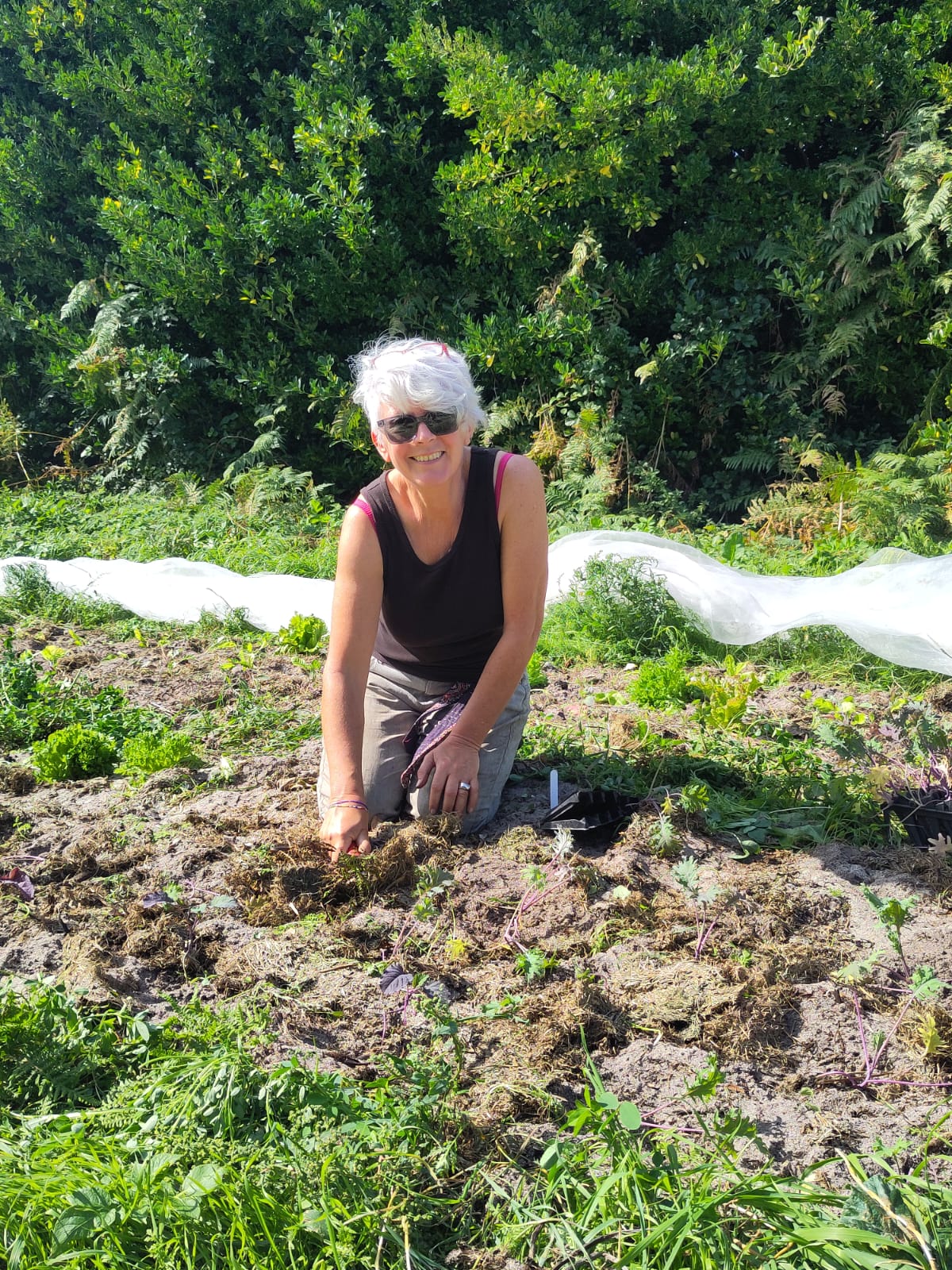

Cornwall Climate Catch Ups: Claire Wallerstein
Reflections from hands-in-the-soil on Scilly.
It started as a bit of a cry for help.
I’m not going to lie – working in the climate and environment sector can sometimes really get you down.
The world is a very different place today from what it was when we launched Cornwall Climate Care over five years ago. Back then, Greta Thunberg was still being applauded at international conferences, councils up and down the land were declaring climate emergencies, and it really felt that momentum was building for humanity to unite against this huge existential threat.
Fast forward to today and the Trump administration is vigorously crushing green policies in the United States (the world’s biggest emitter). Climate denial and conspiracy theories are becoming increasingly mainstream – even as forests are burning, ice caps are melting and crops are failing. Meanwhile, the world has almost certainly already passed the ‘safe’ threshold of a 1.5-degree temperature rise above pre-industrial levels.
At Cornwall Climate Care, we have always strived to counter this kind of gloomy outlook by highlighting the great climate actions being undertaken by organisations and people locally, who we hope can motivate and inspire others.
However, a few months ago I realised that the relentlessly negative climate news (along with the human and environmental catastrophes of the conflicts in Gaza, Ukraine and elsewhere) were making it increasingly hard for me to muster this same positivity and motivation in my own life.
I felt an overwhelming need to take a break from my computer and get outdoors to do something meaningful and practical – preferably with my hands in the soil.
I decided to email Jonathan Smith, who runs Scilly Organics on the Isles of Scilly (and who featured in our documentary Living on the Edge) to ask if he could use any help on his farm.
Kudos to Jonathan for saying yes, given my almost total lack of horticultural knowledge, and a few weeks later I set off to join him for a week’s volunteering and – I hoped – a detox from wall-to-wall climate doom.
The Isles of Scilly may be only 28 miles from the Cornish mainland, but after the three-hour ferry crossing from Penzance you feel like you’re arriving in a different country, or maybe a different decade.
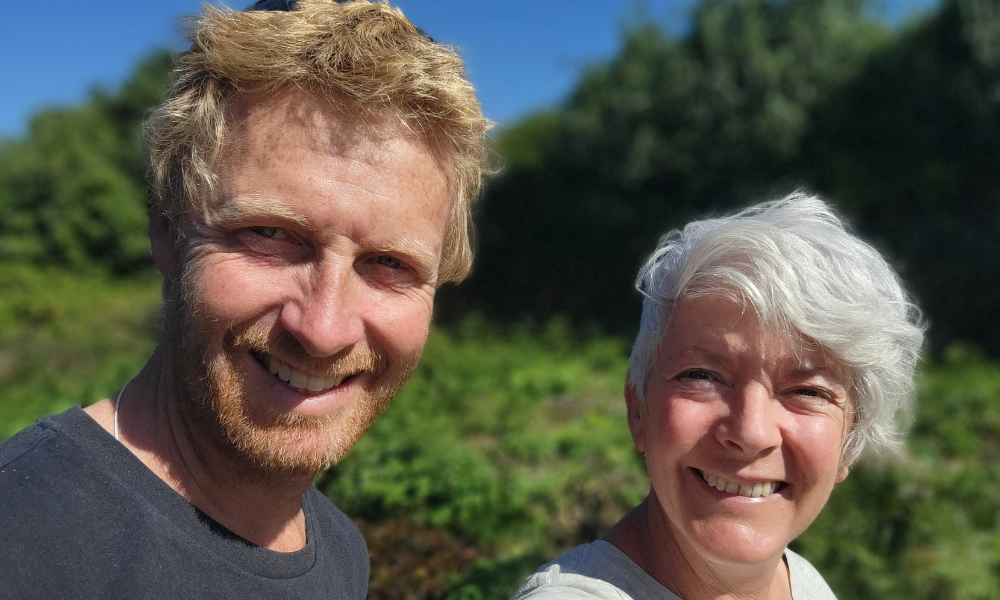
Jonathan met me at the quay on the island of St Martins, armed with a wheelbarrow to push my belongings along the sandy island tracks to where I’d be staying – his farm worker’s cabin just behind the dunes, nestled among big hedges of pittosporum (an evergreen shrub from New Zealand first brought to the islands in the late 1800s to help farmers protect their crops from the Atlantic winds).

My super simple offgrid home for the next week had everything I needed – a bed, woodburner, compost loo, solar shower, a picnic table and camp kitchen with rainwater filter for drinking water. And of course plenty of veg and wild plants to forage for my dinner each day!
Instead of starting each morning doom-scrolling through the news or social media, my daily routine on St Martins began with helping Jonathan to pick and pack salad leaves, grapes, kale, tomatoes and other crops to take up to his honesty stall on the island’s only road, where he sells his produce.
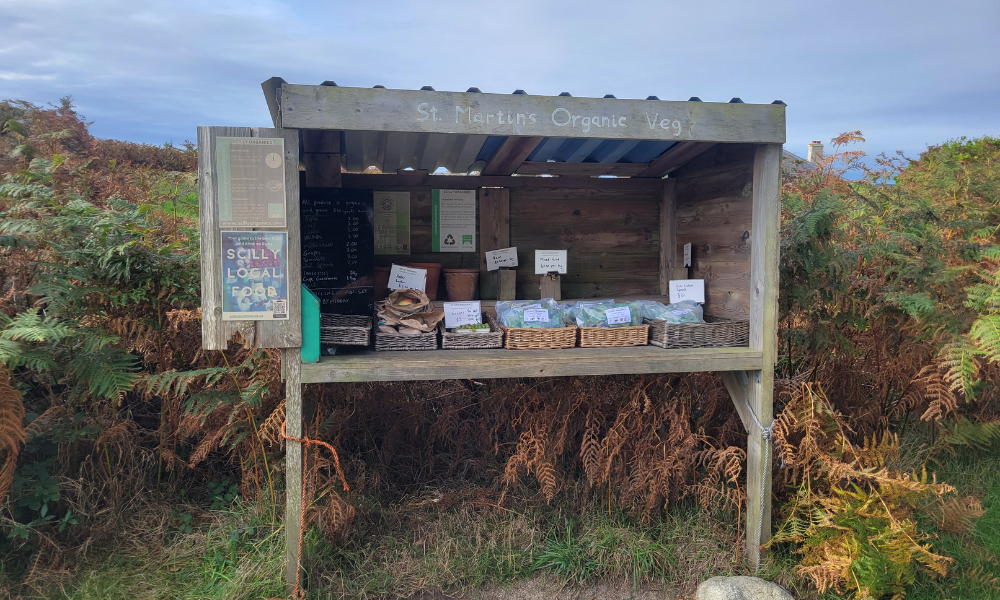
A lot of the economy of the islands is based on this honesty system, with everything from eggs and plants to handicrafts and jams on sale at people’s gates, with a money pot (and usually a card reader in a nod to the modern world). The system is rarely abused.
Over the week I helped with everything from picking apples to planting out winter crops, clearing massive tangles of couch grass roots from the soil and harvesting and storing almost 100 beautiful (but heavy) squashes – a really good upper body workout!
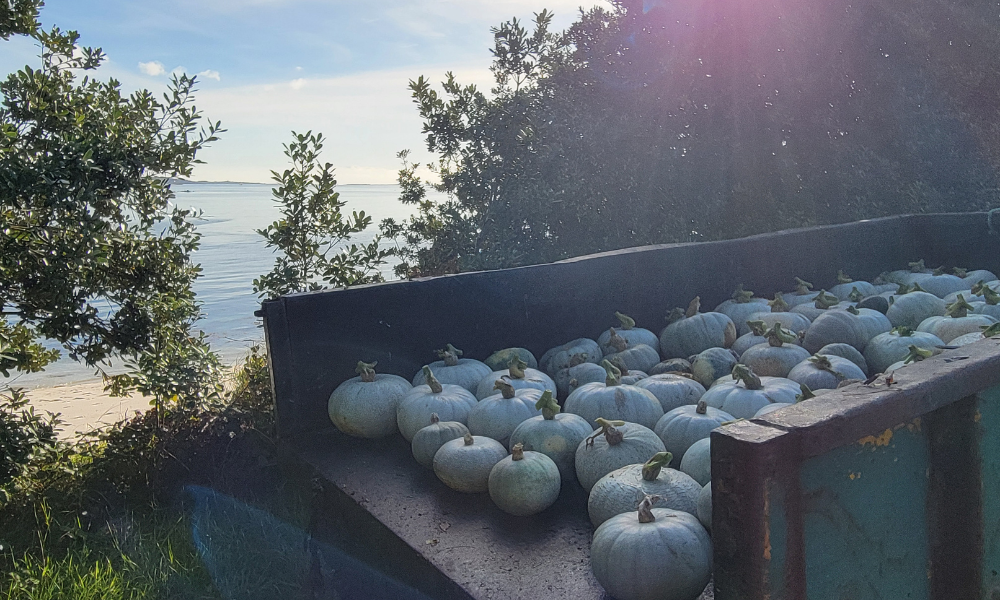
One whole day we spent at the St Martins vineyard, pressing what felt like thousands of apples for juice and cider (pallets of apples had also been sent over by boat from St Mary’s, the main island).
It’s a close-knit community on St Martins, with fewer than 150 permanent residents. You get a sense of how precarious island life could be – and has been, until the fairly recent past. The last two families on nearby Samson were forcibly evacuated in the mid-1800s, suffering severe malnutrition from a diet of little other than limpets and potatoes.
While the islanders’ diet is a lot more varied today (St Martins has a shop, plus a pub, hotel and cafés), supplies from the mainland have to come in by freight ship, which can’t always be guaranteed in stormy conditions.
Jonathan’s small farm clings to the coastal strip behind Lawrence’s Bay. Big chunks of land were lost during the massive winter storms in 2014, and the coast here is being nibbled further and further back all the time as the slow but steadily rising sea level makes the forces of coastal erosion ever stronger.
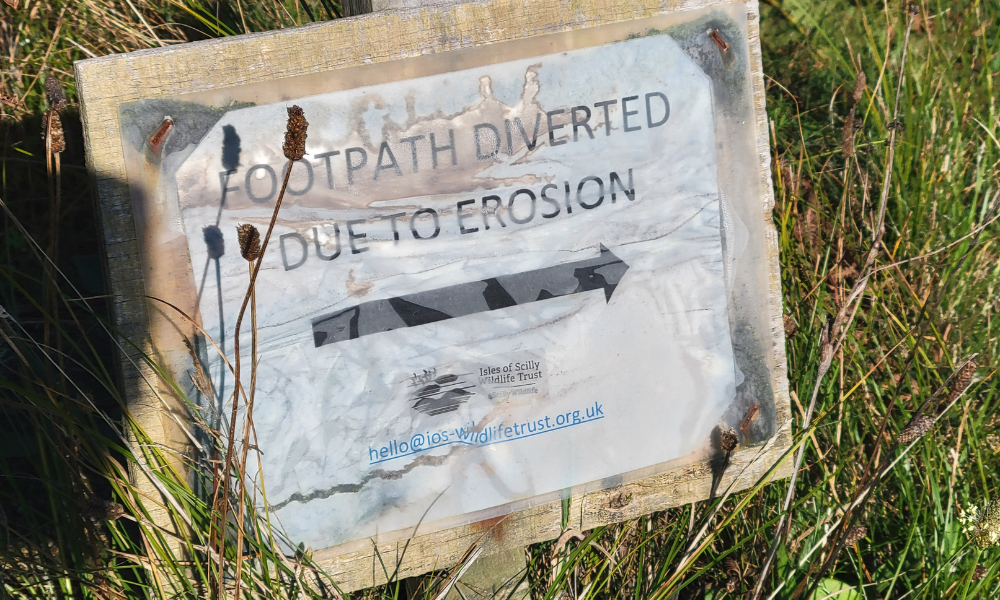
Climate change and weather extremes are making farming in this place more unpredictable and challenging in other ways too. Scilly’s sandy soils drain really fast, and last summer’s incredibly dry and hot weather meant Jonathan had a major job bringing in water from his borehole elsewhere on the island to water his delicate salad plants – his most profitable crop, which he sells to pubs and restaurants all over Scilly.
With extended dry spells like this summer’s raising the possibility of boreholes running dry (and thousands of people visiting the island each year, most of them expecting a shower a day) there has been talk of installing a desalination plant to filter seawater … but these machines are hugely energy hungry – as well as potentially environmentally harmful.
Island living certainly demands resourcefulness and self-reliance and it was incredibly impressive seeing how much healthy, delicious food Jonathan produces from such a small site.
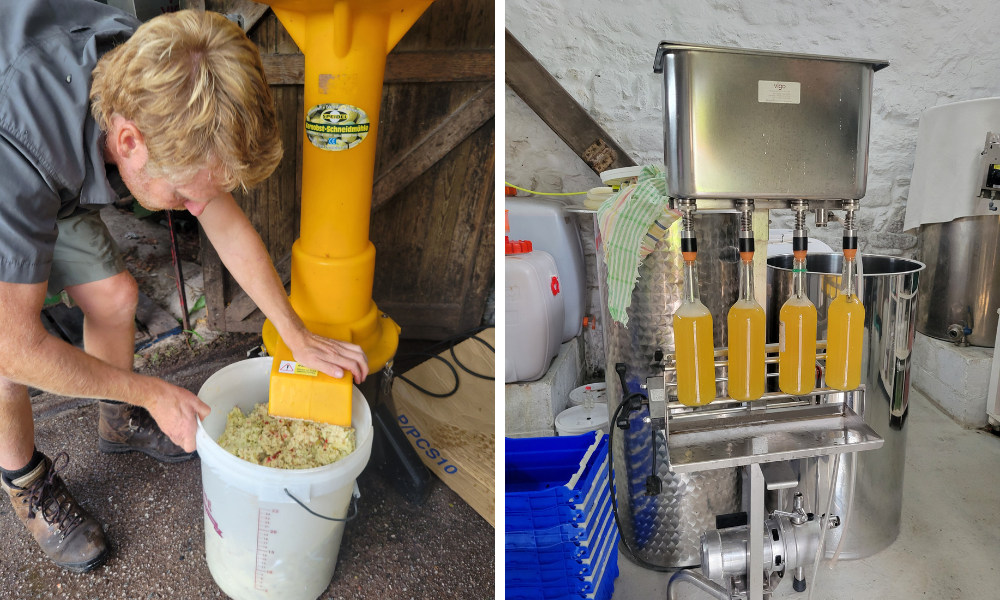
This is largely thanks to use of traditional, low-impact local techniques, like spreading loads of seaweed from the beach onto land that will be planted in the spring. This rots down over the winter to release nutrients into the soil, and is the only fertiliser Jonathan uses, aside from compost and green manures like clover.
One benefit of the sandy soil is that there are almost no slugs or snails …. though rats finished off most of Jonathan’s sweetcorn this year, and we found pheasants had been rampaging through the apples. Originally brought to the island in small numbers for winter shooting, there’s been a population explosion of these large, non-native birds, which have voracious appetites.
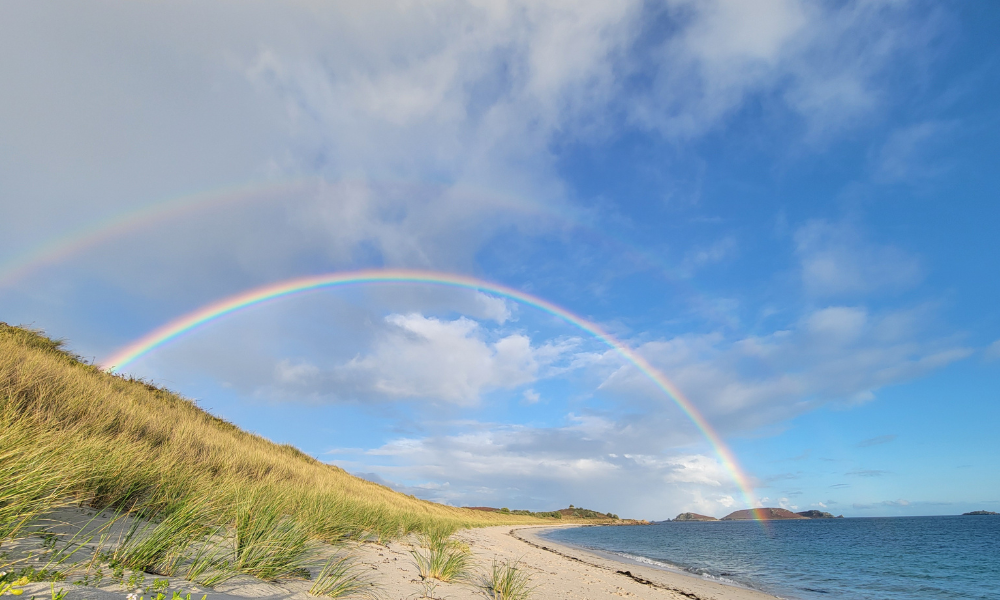
They can’t fit through the cracks into the farm’s polytunnels, however. These were like mini aviaries, busy with Scilly’s famously tame and prolific blackbirds, thrushes and sparrows, all enjoying the balmy temperatures inside and the occasional grape from Jonathan’s vines.
While I felt miles away from home and ‘normal’ life, it turned out to be hard even on St Martins to escape the wider world of climate change….
One day I was invited to a talk in the island hall given by Versha Jones, as part of her tour talking about the Climate Reality Project. This was where I met Glynn Fereday, a straight-talking Yorkshireman and former coal miner, who was holidaying on St Martins.
After 27 years down the mines, then working in gas and waste-to-energy plants, Glynn has ended up working on offshore wind farms, and it was fascinating to hear his inside track about what’s really going on – and the ‘unstoppable’ progress of renewables.
Pointing out that green energy leapt from only about 10% of the UK’s energy mix in 2012 to 50% by 2024, Glynn was angry about the threats by Reform UK (a party largely bankrolled by fossil fuel interests) to cancel subsidies for renewable generators if they win the next elections, slamming these as ‘pathetic’ and ‘childish’.
“There’s a lot of noise, but eventually I am certain the new technology is going to win,” he told me. “I think change is going to be quite rapid. Of course there will be a cost to it, but over time it’s going to bring down our bills.
“There’s nothing wrong with the UK being a leader and doing the right thing – we need people around the world to look up to us and say ‘we need to be like them’.”
While greenhouse gas emissions are still rising and we’re still a very, very long way from net zero, hearing about Glynn’s industry expertise and his confidence in the exponential growth of renewables felt like the perfect complement to my hands-on work on Jonathan’s farm.
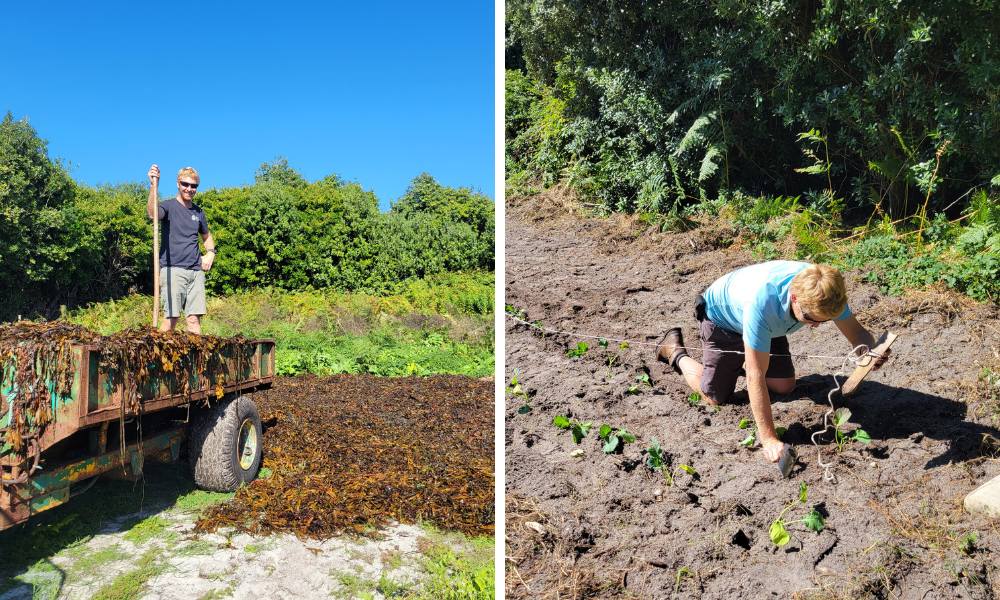
While we absolutely need technological solutions to the climate crisis, these must be coupled with regenerative farming techniques that can produce plentiful, healthy food while also restoring nature and locking away carbon in the soil.

When I wasn’t helping on the farm, I also had plenty of time for walking, swimming, kayaking, seal spotting and taking in the incredible sunsets on St Martins and amazing Milky Way displays in the super clear night skies.

I was so lucky to be able to take this short break to recharge my batteries. I’m well aware that millions of people don’t have this kind of luxury … especially those who are already living at the sharp end of climate change.
I’ve come back with renewed energy and inspired with fresh ideas about how to advocate for the future of our children and our beautiful planet.
I think Jonathan should maybe explore a new business line in offering retreats for burned out environmentalists!
.png)
** Jonathan is looking for an Assistant Grower to help him from April to September next year. Ideal applicants will have some horticultural experience and must be happy to live in basic conditions within a small community on a quiet island. If you’re interested, check his website www.scillyorganics.com – the post will be advertised from late November.**